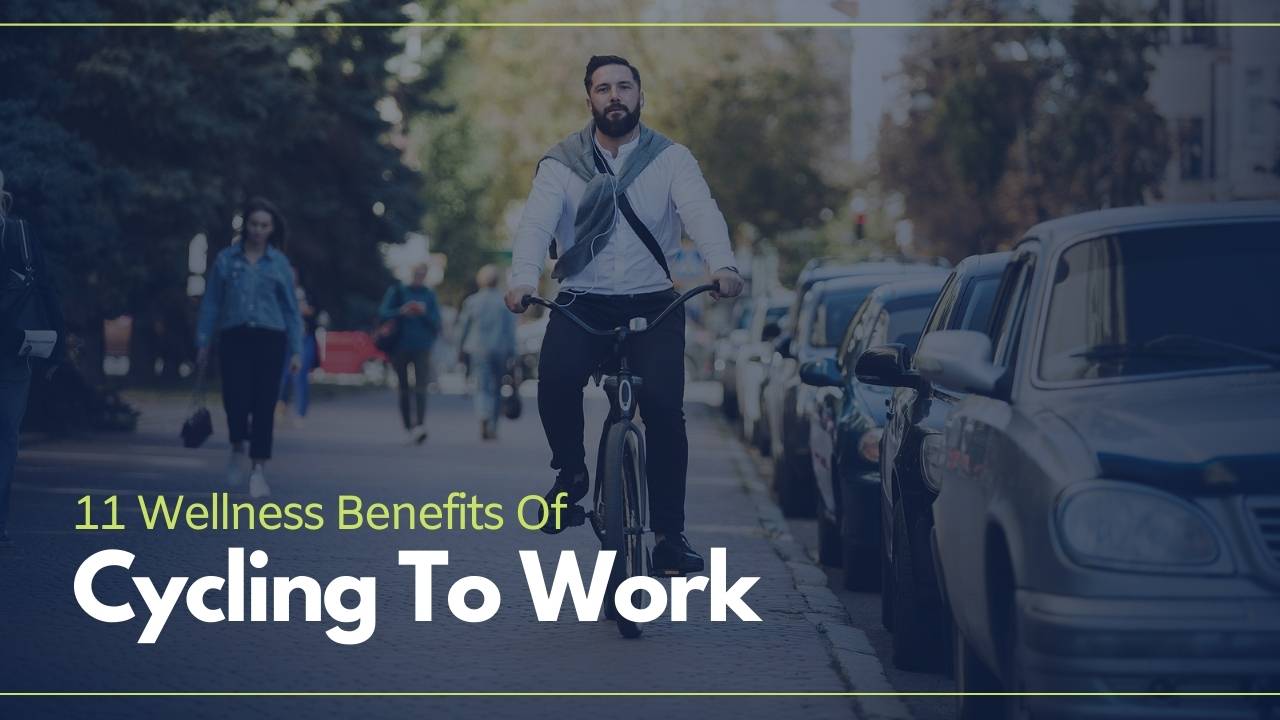- Mental Health Awareness Month is marked during May, with the intention of raising awareness and reducing stigma.
- Now more than ever, as we continue to navigate the coronavirus pandemic, it’s critical to encourage those who need it to seek help.
- Here are 5 of the most popular episodes from Allwork.Space’s Future of Work Podcast discussing mental health and wellness.
Mental Health Awareness Month has been observed during the month of May since 1949 with the goal of raising awareness and reducing stigma.
After a year of global lockdowns and physical distancing requirements, mental health awareness is more important than ever. Mental Health America reported an unprecedented increase in the number of people experiencing mental health problems during the past year.
“Nearly 3 million people have taken an MHA mental health screening during the past twelve months. A million were experiencing depression and hundreds of thousands more were experiencing either anxiety or psychosis. Young people are bearing the brunt of the pandemic, but these mental health impacts cross all generations.”
Mental Health and the Workplace
The coronavirus pandemic has undoubtedly had a profound impact on the mental health of adults worldwide. Now more than ever it’s critical for everyone—including organizations—to contribute to reducing stigma and encourage those who need it to seek help.
For years, the workplace has been a place where people are afraid to talk about mental health; this has slightly changed in recent years, as organizations realized that the wellbeing of employees can directly affect a company’s bottom line.
While in the past many wellness programs focused on smoking cessation, weight loss, and increasing physical activity, over the past few years—and especially over the past 18 months—companies have started to prioritize mental health programs within their wellness initiatives.
How Companies Are Tackling Mental Health and Wellness in the Workplace
From stress management and meditation classes, to providing income protection and creating phycological safety, companies are supporting their employees’ mental wellbeing with a variety of resources.
Allwork.Space’s Future of Work Podcast has invited experts from the wellness field to chat about how wellness is a key part of the future of work and why companies need to prioritize wellness if they want to succeed in the future.
Below are our top 5 most listened podcast episodes focusing on wellness. Make sure you check them out.
1. The Four Types Of Procrastinators According To Experts, And How To Not Be One | Ali Schiller and Marissa Boisvert
Procrastination can be debilitating and it can be a source of anxiety. In this episode, Ali Schiller and Marissa Boisvert, expert accountability coaches and co-owners of Accountability Works, talk about the science behind procrastination, and the four types of procrastinators—1. performer, 2. self-deprecator, 3. over-booker, and 4. novelty seeker—and the different strategies each type can use to overcome their procrastination habits.
2. The Future of Work Is Remote: Why Mental Health and Communication Are Key to Keep Teams Happy and Engaged | Laïla Von Alvensleben
Remote work can feel isolating—this is something that anyone who has worked from home over the past year can agree with. When one is working from home, by themselves, it can make one feel detached from others. This is exacerbated by the fact that many workers still struggle to communicate effectively with their remote peers.
In this episode, Laïla Von Alvensleben shares some strategies managers can implement to improve remote team communication, as well as company-wide practices that can help improve the mental health of remote employees.
3. The Future Of Employee Benefits: Healthcare And Income Protection Will Take Center Stage | Kara Hoogensen
The world of work is changing; as a result, companies are having to change their employee benefits programs to better suit today’s working models. With many people working from home, employers have come to the realization that some of their perks and benefits programs are not in tune with current employee needs.
In this episode Kara Hoogensen talks about emerging employee benefits like caregiver services, income protection, and life insurance; as well as strategies companies can implement to better understand the current needs of employees—remote and in-office ones.
4. Future of Work: How Coworking Spaces Are Destigmatizing Mental Health and Designing for Wellness | Laura Shook Guzman
“Mental health is as essential for knowledge work in the 21st century as physical health was for physical labor in the past.” Some workers have reported increased levels of happiness and reduced levels of stress from working out of a coworking space.
With hybrid work models on the rise, coworking spaces are expected to become highly popular in the short term. Psychotherapist and coworking space founder, Laura Shook-Guzman, shares in this episode why coworking spaces are uniquely positioned to normalize and destigmatize mental health.
5. Understanding the Role of Leaders in Creating Psychological Safety | Dr. Michelle McQuaid
To destigmatize mental health in the workplace, it’s crucial that companies start by creating psychological safety. Research has found that leaders set the tone for psychological safety in the workplace. Research from 2020 found that only 2 out of every 10 workers feel safe to talk about their struggles at work. This needs to change.
Dr. Michelle McQuaid talks about how leaders can create psychologically safe workplaces and why companies need to focus not only on offering wellness programs, but also—and more importantly—on measuring the impact of their programs.



 Dr. Gleb Tsipursky – The Office Whisperer
Dr. Gleb Tsipursky – The Office Whisperer Nirit Cohen – WorkFutures
Nirit Cohen – WorkFutures Angela Howard – Culture Expert
Angela Howard – Culture Expert Drew Jones – Design & Innovation
Drew Jones – Design & Innovation Jonathan Price – CRE & Flex Expert
Jonathan Price – CRE & Flex Expert











